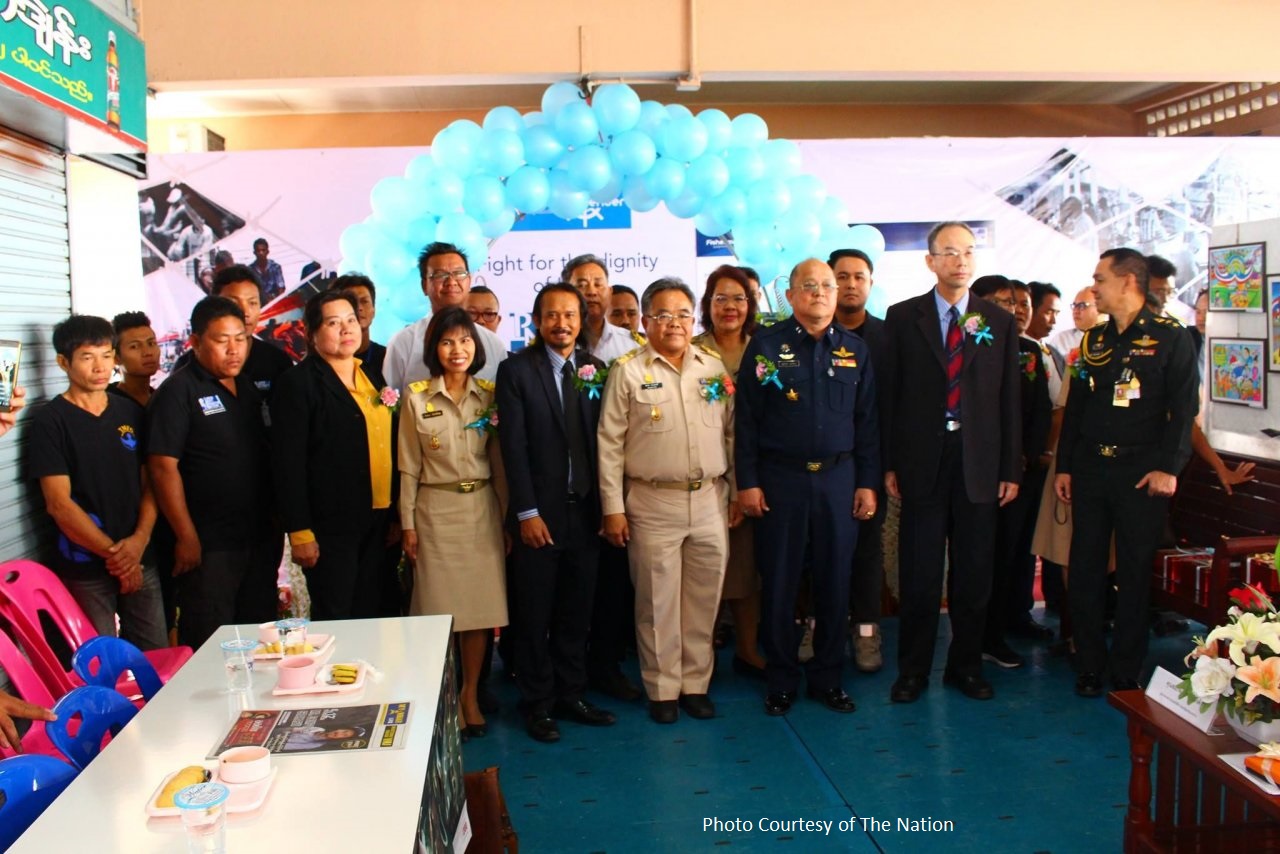
By Pratch Rujivanarom for The Nation on 18 December 2017,
Key stakeholders have joined forces to tackle human trafficking in the fishing industry by creating a Fishermen Centre, to provide assistance to industry labourers.
To mark International Migrant Day, social work organisations led by the Labour Rights Promotion Network (LPN) and the Fish Marketing Organisation, on Monday announced the new Centre would work to monitor and prevent human trafficking in the fisheries sector.
The Samut Sakhon-based Centre is to be operated by the public sector with the involvement of migrant workers and the business sector. Its mandate includes promoting the understanding of relevant laws and worker’s rights affecting the fishing industry and empowering workers to prevent rights violations and personal abuse.
The first office of the Fishermen Centre is at the Samut Sakhon fish market, with other offices in Rayong’s Mueng District and Trat’s Klong Yai District.
LPN director Sompong Srakaew said that Thailand continued to face major issues related to migrant workers, including the use of slave labour in the fishing industry, child labour, and human trafficking.
Workers’ lack of knowledge and understanding about the law and their rights has exacerbated the problem, said Sompong. Regardless of their nationality, all workers have rights, but migrant workers are prone to being taken advantage of by agents.
As well, many workers in the fishing industry have lacked access to justice and a system of rights protection, because there was no central agency to receive, deal, and support them with their problems.
That led to the LPN joining with other key stakeholders and interested parties to set up the Fishermen Centre. The Environmental Justice Foundation is involved, along with the Multi-stakeholder Initiative for an Accountable Supply Chain of Thai Fisheries (MAST). They hope to “promote workers’ rights protection among the fisheries workers, ensure that their employers treat them well, and encourage creation of a network among the fisheries workers themselves,” Sompong said.
Workers facing any problems could notify the centre to access legal assistance and rights protection. The centre also works proactively by recruiting migrant worker volunteers to monitor problems in their workplace and community, while the centre also works with business operators to support workplace recognition of workers’ rights.
“This is the new approach toward the eradication of human trafficking in fisheries sector, as it is the first time that the public organisations, migrant workers, business operators, and the authorities have jointly worked together to sustainably solve the problems in the fisheries sector,” Sompong said.
Source: http://www.nationmultimedia.com/detail/national/30334223




